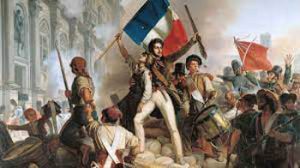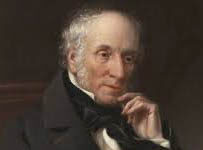The Roles of Literature in Fostering Political Revolution
The Roles of Literature in Fostering Political Revolution
The Roles of Literature in Fostering Political Revolution
Literature, much like a masterful painter’s brush, has demonstrated its capacity to stir the winds of political revolution and reshape the contours of societies. Just as a conductor orchestrates a symphony, literature orchestrates narratives that resonate with the collective consciousness, acting as a catalyst for political change. Throughout history, written words have been wielded as weapons, woven into the fabric of societal transformation and sparking movements that alter the course of nations. The factors affected by literature in bringing about political changes may be discussed as under:
Literature as a Catalyst for Political Awareness: Imagine literature as a beacon that pierces the darkness of political ignorance, illuminating paths toward change. Literature has often served as a catalyst, awakening political awareness among the masses. Like a clarion call echoing through the ages, Thomas Paine’s “Common Sense” ignited the spark of American independence during the 18th century. Paine’s persuasive pamphlet acted as a catalyst, galvanizing colonists to recognize the inherent injustice of British rule and inspiring them to envision a future of self-governance. The tapestry of Paine’s words, intricately woven with eloquence, unfurled a newfound political consciousness that ultimately fueled the American Revolution.
Literature as a Mirror Reflecting Societal Inequities: Literature functions as a mirror, reflecting the inequalities and injustices that fuel the flames of political revolution. Like a polished mirror that reveals every blemish, Emile Zola’s open letter “J’accuse…!” exposed the rampant anti-Semitism and miscarriage of justice in the Dreyfus Affair of 19th century France. Zola’s incendiary words, much like a scorching spotlight, illuminated the dark corners of societal prejudice and corruption, prompting a wave of public outrage. The tapestry of Zola’s indictment, meticulously woven with moral indignation, catalyzed a movement that sought justice and reshaped French political discourse.
Literature as a Voice of Dissent and Rebellion: Literature serves as a voice of dissent, challenging oppressive regimes and fostering rebellion against political tyranny. Like a resonant anthem echoing through time, Aleksandr Solzhenitsyn’s “One Day in the Life of Ivan Denisovich” cast a searing spotlight on the horrors of Soviet labor camps during the 20th century. Solzhenitsyn’s piercing narrative, akin to a rallying cry, exposed the grim realities of totalitarianism, galvanizing dissidents and inspiring a wave of resistance against the Soviet regime. The narrative’s tapestry, skillfully woven with firsthand experience, became a banner of dissent that ignited the flames of political revolution.
Literature as a Platform for Ideological Dissemination: Literature serves as a platform for the dissemination of radical ideologies that challenge the status quo. Just as a soapbox serves as a platform for impassioned speeches, Mao Zedong’s “Little Red Book” disseminated his revolutionary ideals to the masses during the mid-20th century Chinese Cultural Revolution. Zedong’s compact tapestry of quotations, much like an ideological manifesto, became a guidebook for political action, rallying individuals to embrace his vision of social transformation. The book’s widespread distribution and ideological resonance became an integral thread in the revolutionary tapestry that reshaped China’s political landscape.
Literature as a Chronicle of Resistance: Literature chronicles the narratives of resistance, chronicling the stories of individuals who challenge political oppression. Just as a historian preserves the threads of history, Malala Yousafzai’s memoir “I Am Malala” chronicles her brave struggle against the Taliban’s ban on girls’ education in 21st century Pakistan. Yousafzai’s poignant words, akin to an embroidered tale, recount her defiance against oppressive forces and her journey to advocate for the right to education. The memoir’s tapestry of personal resilience became a rallying cry for global support and contributed to the evolving narrative of empowerment and change.
Literature as a Blueprint for Societal Transformation: Literature often serves as a blueprint, offering visions of alternative political systems that inspire revolutionary change. Like a visionary architect’s design, George Orwell’s “Animal Farm” allegorically portrayed the corruption and betrayal within the Soviet Union’s post-revolutionary government. Orwell’s narrative blueprint, much like a blueprint for a new world, laid bare the erosion of ideals and the rise of a new form of tyranny. The allegory’s tapestry of animal characters became a cautionary tale, urging vigilance against the manipulation of political power and fostering discussions about the true nature of revolution.
Literature as a Source of Unity and Mobilization: Literature functions as a source of unity, rallying individuals around shared ideals and fostering political mobilization. Just as a banner unites diverse forces under a common symbol, Harriet Tubman’s “Narrative of Sojourner Truth” served as an emblem of abolitionist unity during the 19th century. Truth’s narrative, much like an embroidered banner, recounted her journey from slavery to freedom and championed the cause of abolitionism. The narrative’s tapestry of courage and resilience resonated with others, uniting them in the pursuit of a common goal and contributing to the transformative movement to end slavery.
In conclusion, the role of literature in political revolution is akin to a master weaver crafting intricate patterns that reshape the societal fabric. Literature catalyzes political awareness, serves as a mirror to expose inequities, provides a voice of dissent, acts as a platform for ideological dissemination, chronicles stories of resistance, offers blueprints for transformation, and unites individuals in a common cause. Through these roles, literature has time and again demonstrated its capacity to not only chronicle political revolutions but also to act as a catalyst, an agent of change, and a driving force that has woven itself into the very narrative of societal transformation. 0 0 0.
The Roles of Literature in Fostering Political Revolution
N.B. The article ‘The Roles of Literature in Fostering Political Revolution’ originally belongs to the book ‘The Origin Evolution & Functions of Literature‘ by Menonim Menonimus. The Roles of Literature in Fostering Political Revolution
Books of Literary Criticism by M. Menonimus:
- World Short Story Criticism
- World Poetry Criticism
- World Drama Criticism
- World Novel Criticism
- World Essay Criticism
- Indian English Poetry Criticism
- Indian English Poets and Poetry Chief Features
- Emily Dickinson’s Poetry-A Thematic Study
- Walt Whitman’s Poetry-A Thematic Study
- Critical Essays on English Poetry
- Tawfiq al-Hakim’s Novel: Return of the Spirit-An Analytical Study
- Tawfiq al-Hakim’s Novel: ‘Yawmiyyat Naib Fil Arayaf’-An Analytical Study
- Analytical Studies of Some Arabic Short Stories
- A Brief History of Arabic Literature: Pre-Islamic Period (500 AD-622 AD)
- A Brief History of Arabic Literature: Early Islamic Period (622 AD-661 AD)
- Reviews on William Shakespeare’s Works
- Reviews of Charles Dickens’ Works
- Reviews of John Milton’s Literary Works
- Reviews of Some Iconic Travelogues
- Shakespeare’s Sonnets-Critical Studies
- Analytical Studies of Selected Poems of Sarojini Naidu
- Analytical Studies of Selected Poems of Rabindranath Tagore
- Analytical Studies of Selected Indian English Poems
- Reviews of Selected Motivational Books
- Origin Evolution & Functions of Literature …
Additional Searches::











